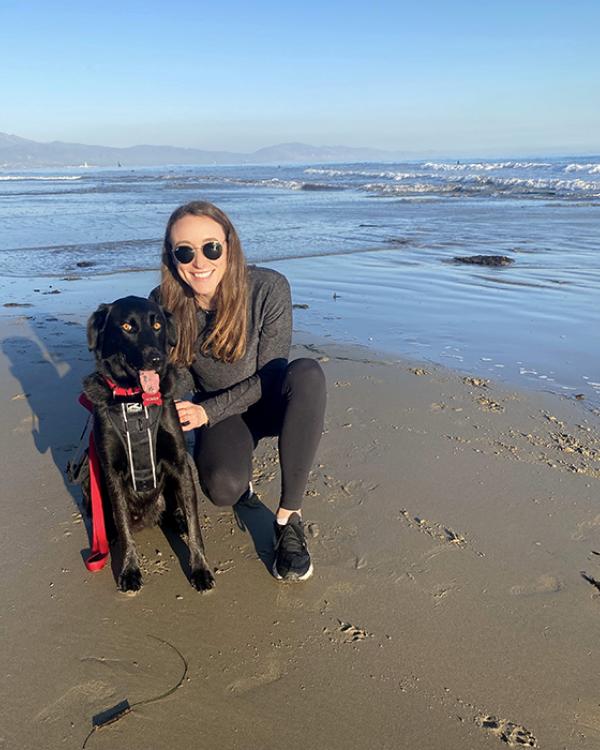
Emily Edelman is a doctoral student in School Psychology working under Dr. Matthew Quirk. She received her B.A. in Psychology with a Health and Development emphasis and an Education minor from Stanford University in 2017. After Stanford, Edelman taught at a therapeutic day school to help children with behavioral and emotional regulation difficulties re-engage in learning and develop the positive behaviors necessary to transition back to a more traditional school setting. Her research interests include evidence-based prevention and early intervention practices that positively impact children’s developmental trajectories. She is especially interested in the ways in which school-based interventions can support students’ academic and social-emotional development as well as parents’ engagement in their children’s learning.
GGSE: How do you spend your free time?
Edelman: I spend as much of my free time as possible out in nature. I love exploring hiking trails, walking on the beach, and paddle boarding when the water isn’t too cold. I am still trying to convince my dog to paddle board with me, but that is a work in progress. I also enjoy skiing the Eastern Sierras whenever I can escape to the snow. While I used to frequent local Santa Barbara restaurants pre-COVID, my new go-to meal on the weekends involves bringing takeout from one of my favorite spots to the beach or to the Mission Rose Garden for a picnic. I also enjoy wine tasting at local wineries downtown and at vineyards in the mountains nearby. When I do leave Santa Barbara, it is typically to visit family and friends in Los Angeles where I grew up. I look forward to exploring more of the world whenever I have the chance.
GGSE: What’s the best piece of advice a professor has given you?
Edelman: The best piece of advice a professor has given me is to go with my gut. While this runs in opposition to the data-based decision making that I am trained to always do in my research and clinical practice, I have used this advice for many of my own academic and career path decisions, such as attending the CCSP program at UCSB. I tend to be quite the overthinker, and I could make endless pros and cons lists, but when it comes to my own personal and professional decisions, my gut has always guided me in the right direction.
GGSE: What’s something you learned from working with children who had behavioral and emotional regulation difficulties?
Edelman: One of the many things I have learned from working with children who had behavioral and emotional regulation difficulties is the importance of always maintaining a holistic and strengths-based perspective. No matter how many difficulties a child is having or adverse experiences through which a child has persevered, every single child always also has numerous strengths and protective factors. It is critical to identify not only the risk factors and adverse environmental circumstances that may have contributed to a child’s current behaviors but also the strengths and protective factors that the child has across the individual, familial, school, and community levels. Identifying, highlighting, and building upon such protective factors across the core domains of a child’s life allows me to engage with the child and the child’s family from a strengths-based, rather than deficit-based, approach. This, in turn, shifts the focus from the problematic behaviors themselves to the ways in which I can collaboratively help strengthen the child’s resilience, supportive networks, social-emotional competence, self-efficacy, and more.
GGSE: Where do you see yourself in five years?
Edelman: In five years, I will have just completed my postdoc (fingers crossed!) and will be gearing up to take my clinical licensure exam, which will allow me to practice independently as a clinician. I see myself in Santa Barbara or Los Angeles, continuing to enjoy the California sunshine, and beginning to form a multifaceted career in which I teach, conduct research, and also develop a clinical practice working as a psychologist with children and families.